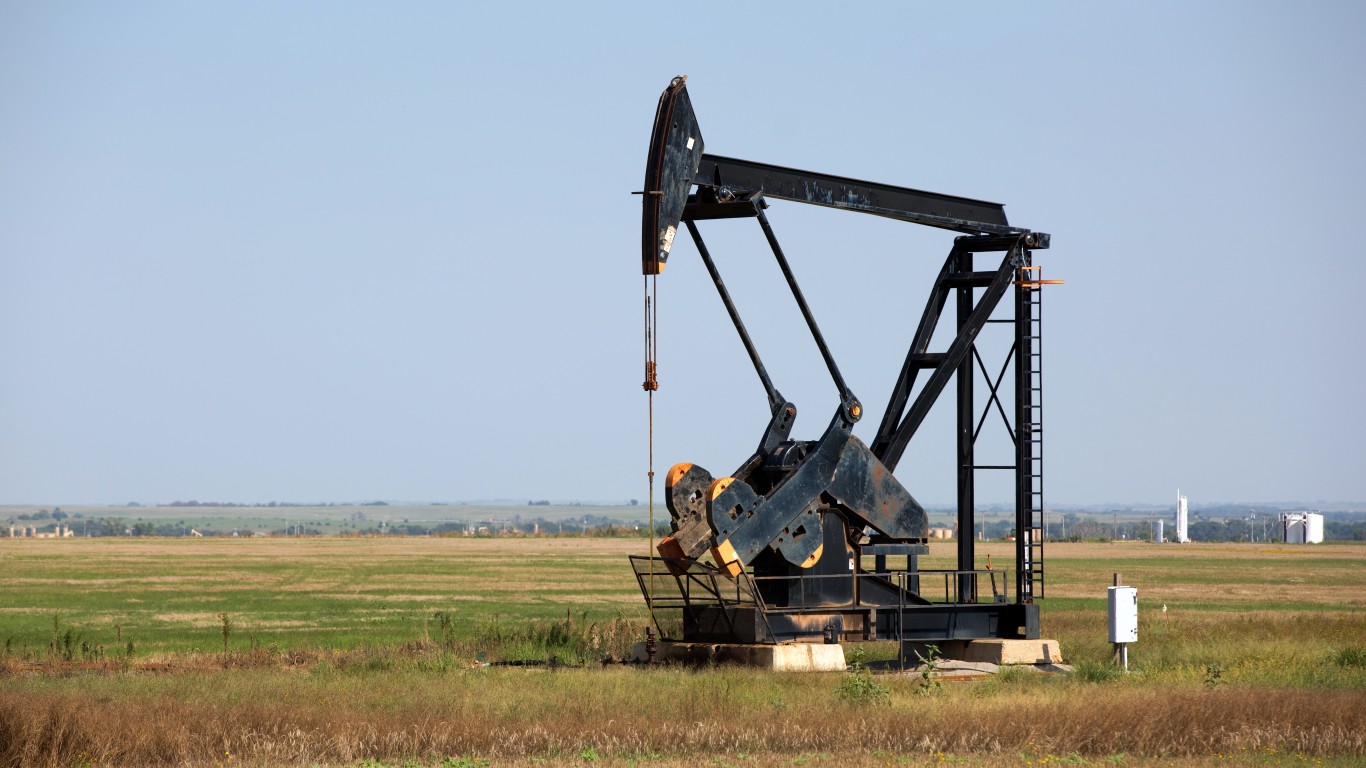
The oil industry faced unprecedented challenges in 2020. Due in large part to the COVID-19 pandemic, demand for oil dipped for the first time in over a decade, down by over 9 million barrels per day. With it, oil production also dropped by 6.6 million barrels per day.
Still, an average of more than 88 million barrels were produced worldwide each day in 2020. The vast majority of this production took place in just 15 countries. In addition to having the highest production output in 2020, these 15 countries have a combined 1.6 trillion barrels of oil in their reserves.
To determine the countries that control the world’s oil, 24/7 Wall St. reviewed data on oil reserves from oil and gas company BP’s “Statistical Review of World Energy 2021.” Countries were ranked based on proved reserves as of 2020.
The 15 countries with the most oil are spread across five different continents, though the majority are located in the Middle East and North Africa regions. The other countries tend to be very large, as the more land area a country has, the more likely some of it sits on top of a large deposit of oil.
Oil is one of the most valuable and widely used commodities in the world, and countries with large supplies tend to be very wealthy. The economies of several nations on this list are almost wholly powered by the oil industry, and they rank among the richest countries in the world.
Click here to see the 15 countries that control the world’s oil
Click here to read our detailed methodology
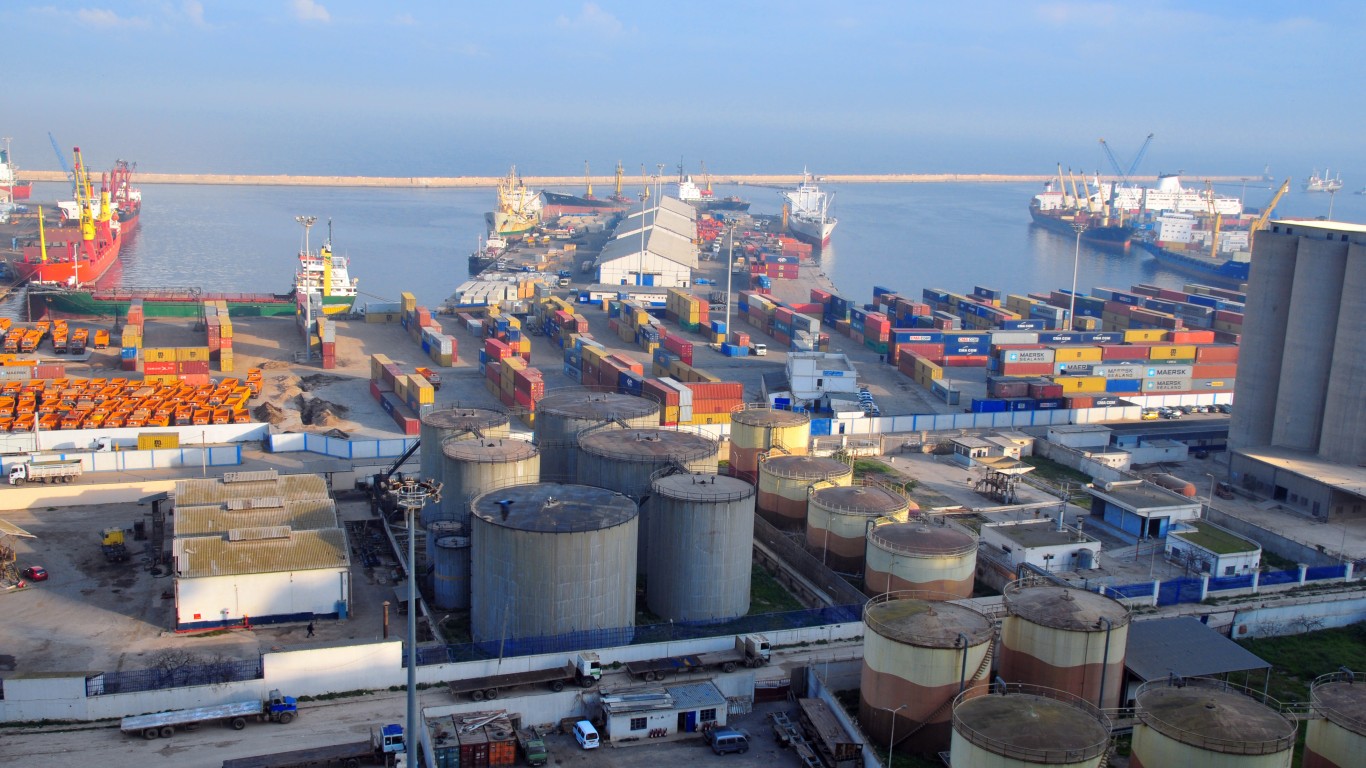
15. Algeria
> Proved oil reserves: 12.2 billion barrels
> Reserves as a share of world total: 0.7%
> 2020 oil production: 1.3 million barrels per day
> 2020 GDP per capita: $11,268
> 2020 oil exports as pct. of GDP: 14.4%
[in-text-ad]
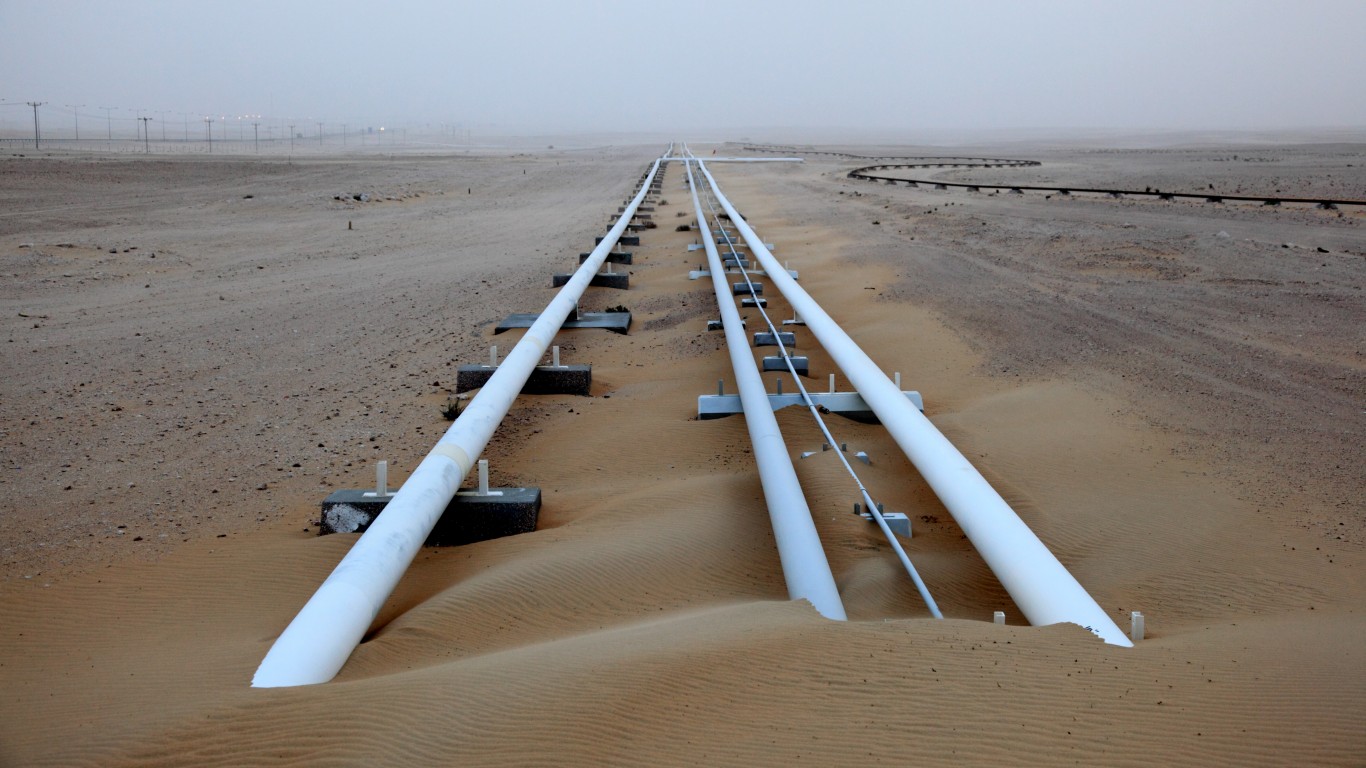
14. Qatar
> Proved oil reserves: 25.2 billion barrels
> Reserves as a share of world total: 1.5%
> 2020 oil production: 1.8 million barrels per day
> 2020 GDP per capita: $89,949
> 2020 oil exports as pct. of GDP: 16.9%
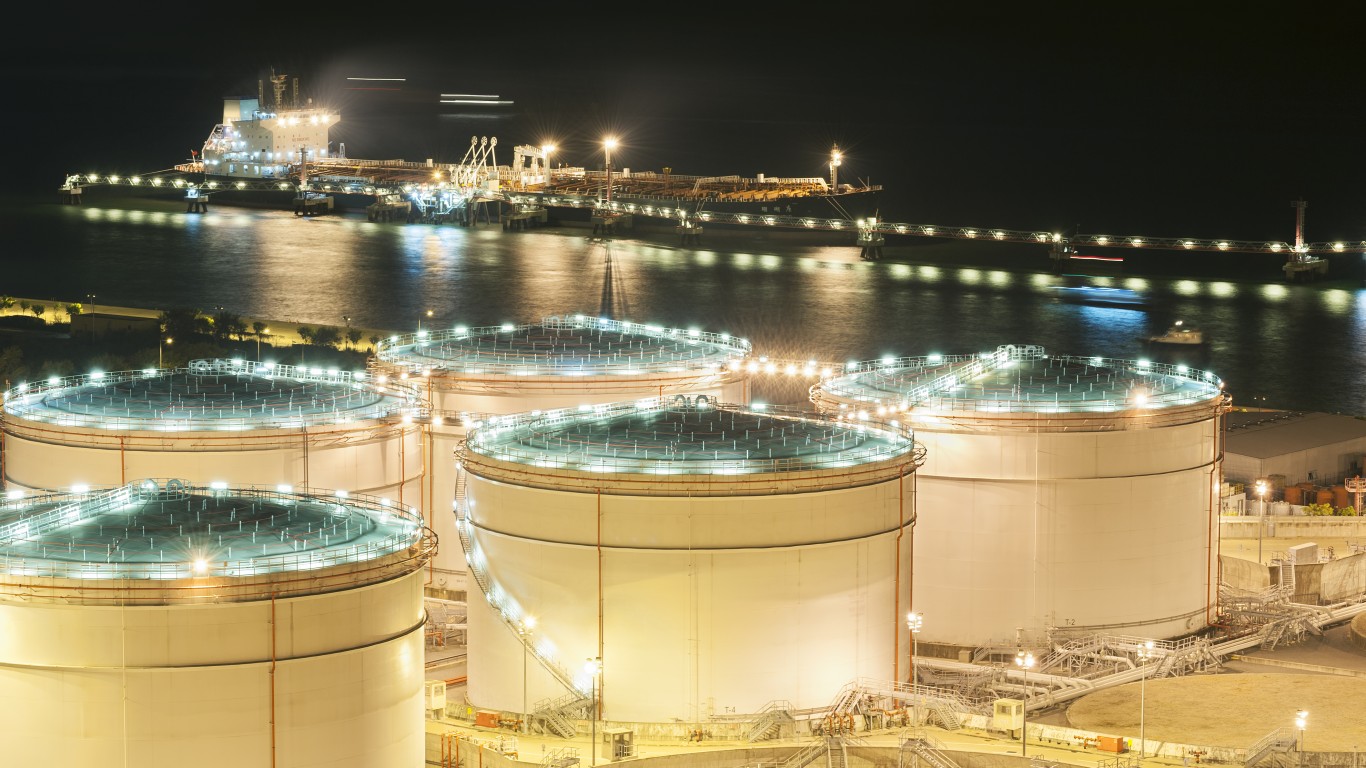
13. China
> Proved oil reserves: 26.0 billion barrels
> Reserves as a share of world total: 1.5%
> 2020 oil production: 3.9 million barrels per day
> 2020 GDP per capita: $17,312
> 2020 oil exports as pct. of GDP: 0.4%
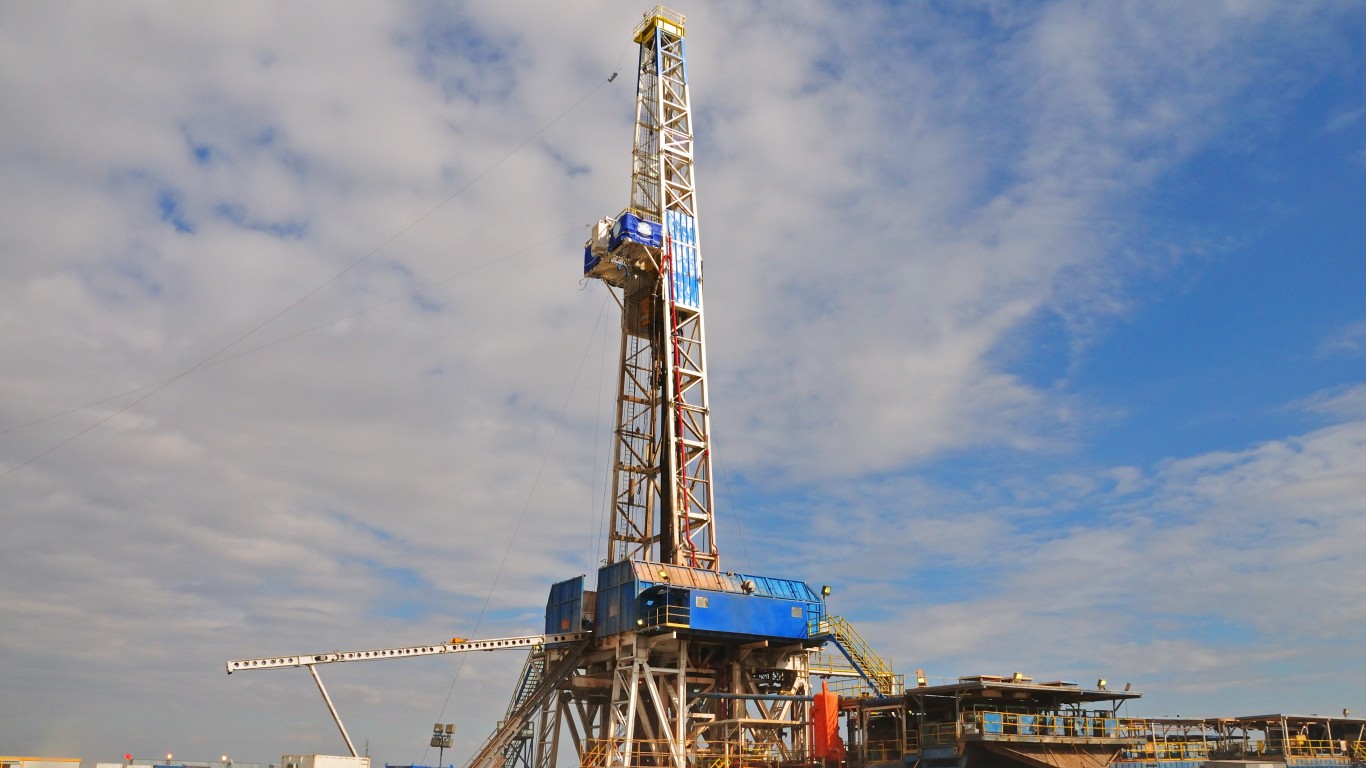
12. Kazakhstan
> Proved oil reserves: 30.0 billion barrels
> Reserves as a share of world total: 1.7%
> 2020 oil production: 1.8 million barrels per day
> 2020 GDP per capita: $26,729
> 2020 oil exports as pct. of GDP: 13.8%
[in-text-ad-2]
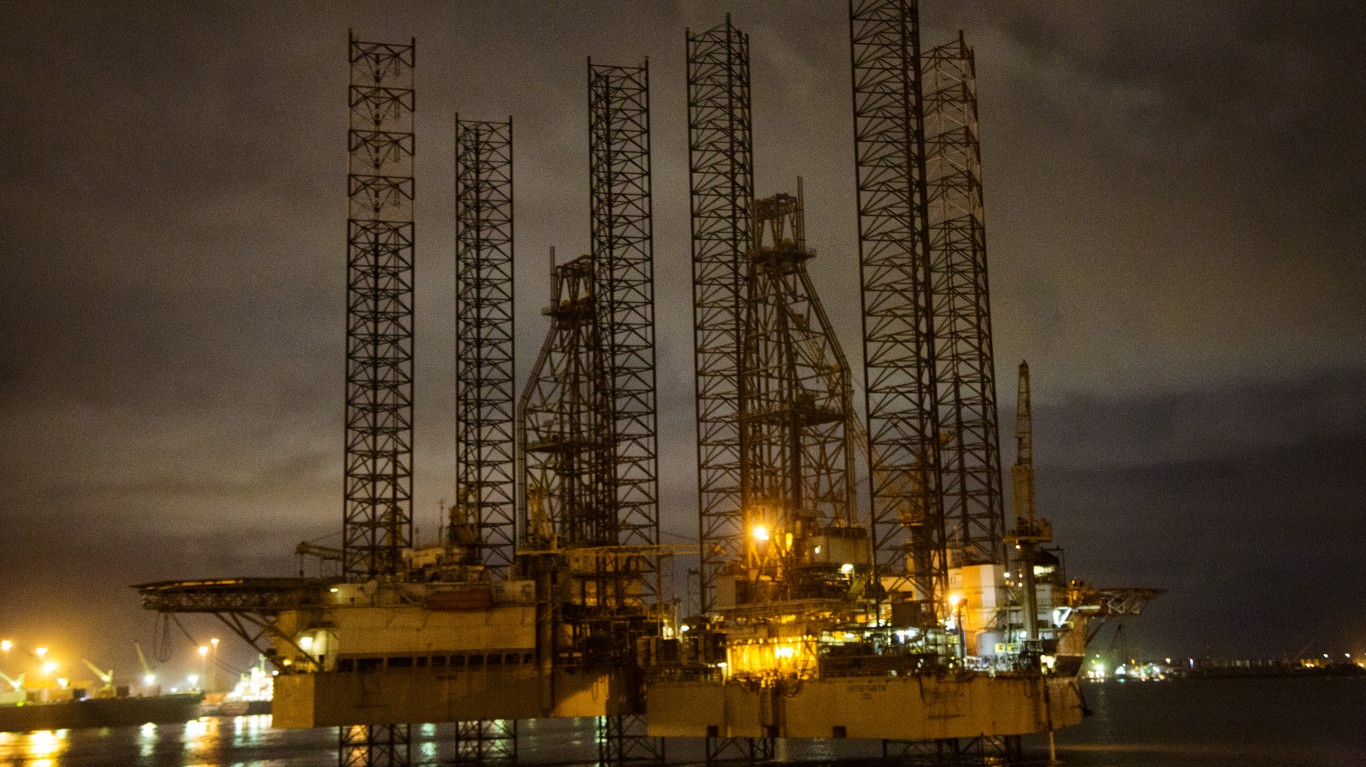
11. Nigeria
> Proved oil reserves: 36.9 billion barrels
> Reserves as a share of world total: 2.1%
> 2020 oil production: 1.8 million barrels per day
> 2020 GDP per capita: $5,187
> 2020 oil exports as pct. of GDP: 7.4%
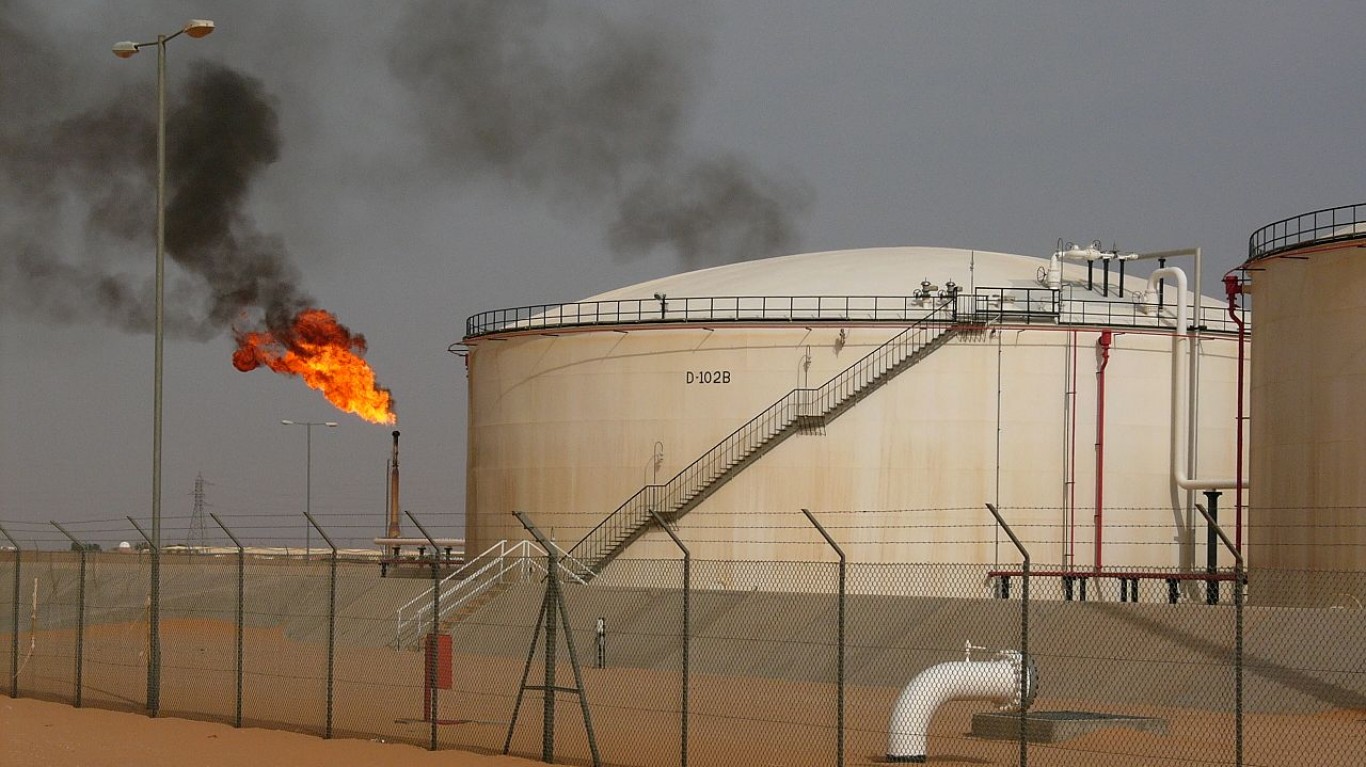
10. Libya
> Proved oil reserves: 48.4 billion barrels
> Reserves as a share of world total: 2.8%
> 2020 oil production: 389,596 barrels per day
> 2020 GDP per capita: $10,847
> 2020 oil exports as pct. of GDP: 43.9%
[in-text-ad]

9. United States
> Proved oil reserves: 68.8 billion barrels
> Reserves as a share of world total: 4.0%
> 2020 oil production: 16.5 million barrels per day
> 2020 GDP per capita: $63,544
> 2020 oil exports as pct. of GDP: 0.4%
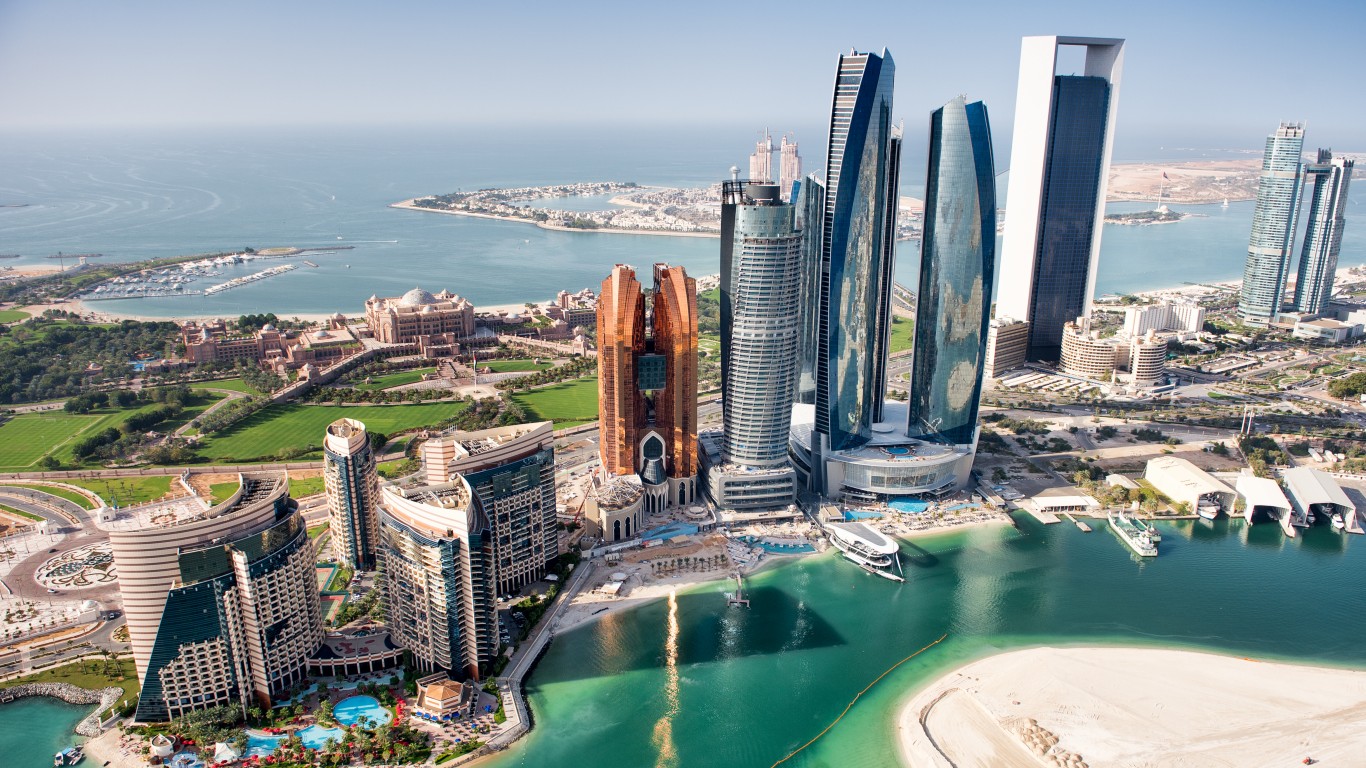
8. United Arab Emirates
> Proved oil reserves: 97.8 billion barrels
> Reserves as a share of world total: 5.6%
> 2020 oil production: 3.7 million barrels per day
> 2020 GDP per capita: $69,958
> 2020 oil exports as pct. of GDP: 16.2%
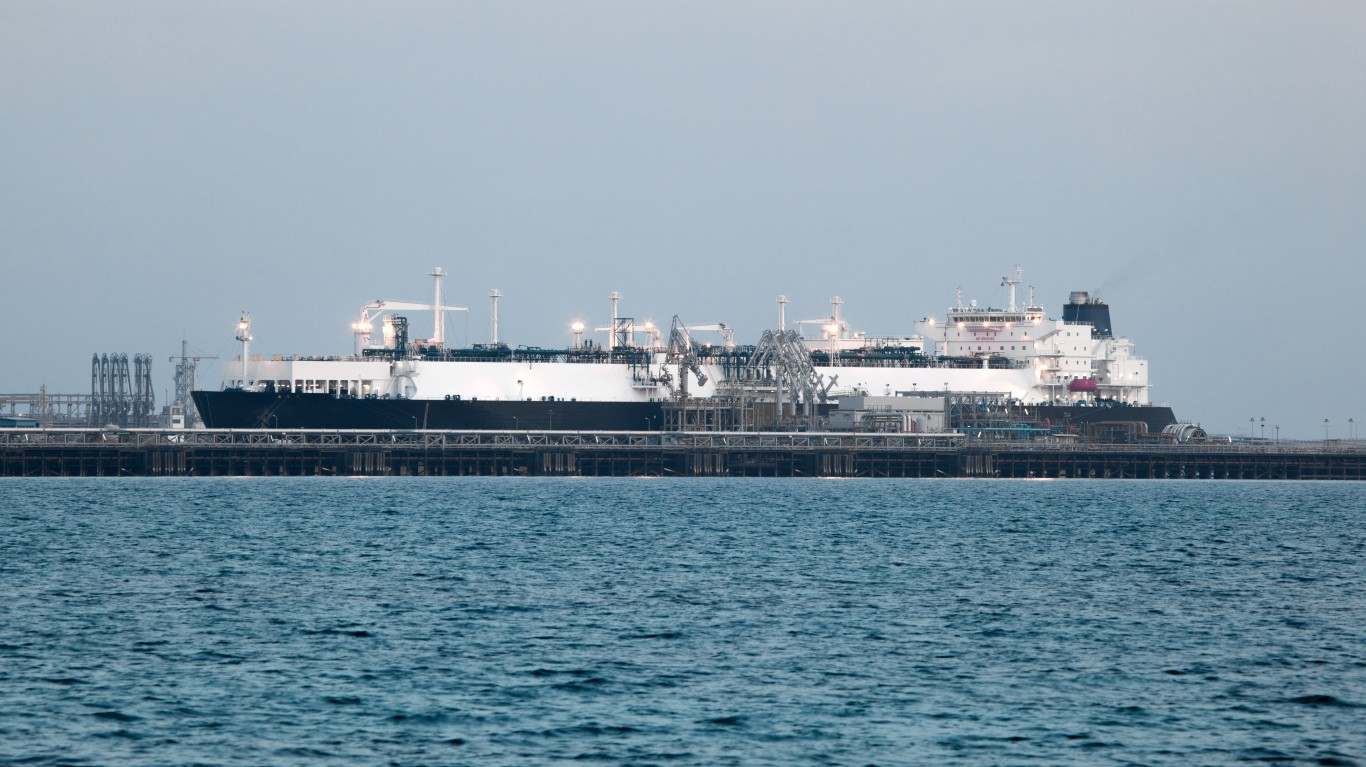
7. Kuwait
> Proved oil reserves: 101.5 billion barrels
> Reserves as a share of world total: 5.9%
> 2020 oil production: 2.7 million barrels per day
> 2020 GDP per capita: $51,962
> 2020 oil exports as pct. of GDP: 42.1%
[in-text-ad-2]
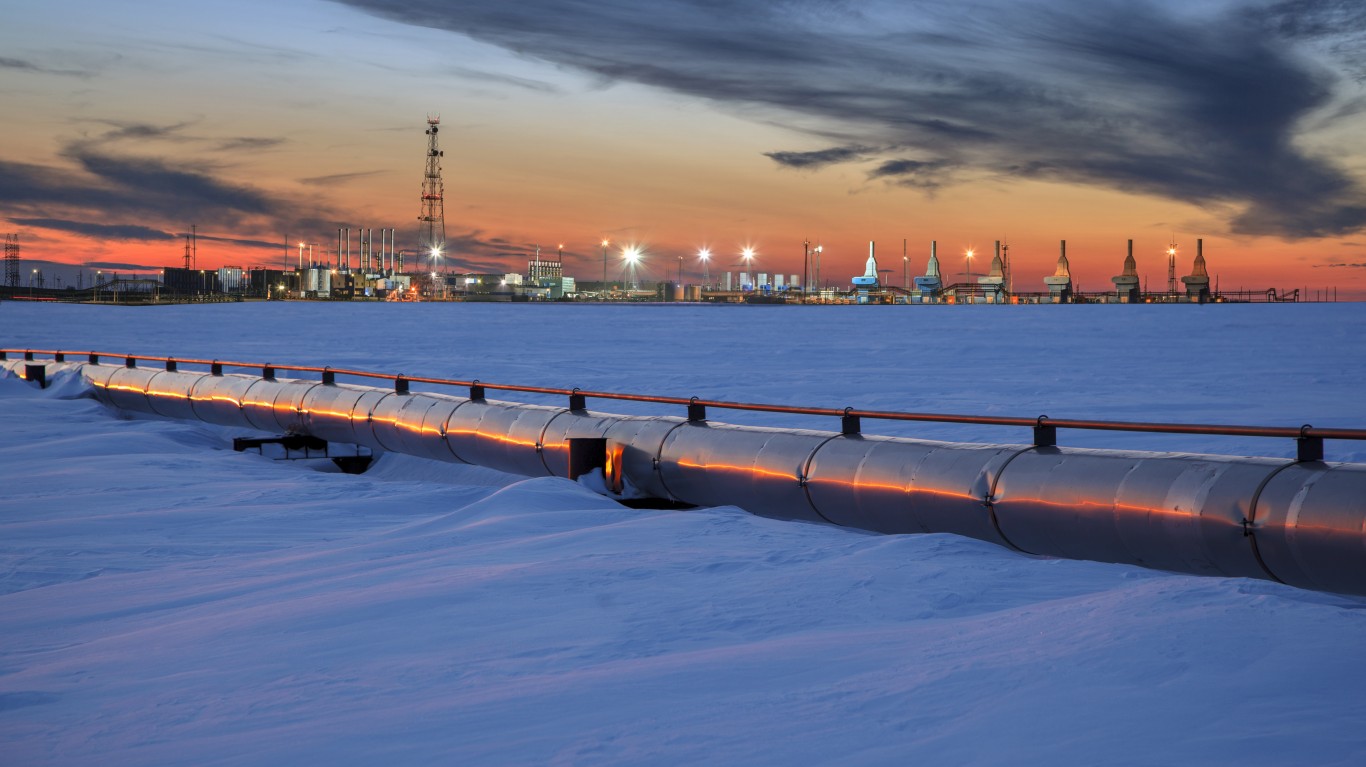
6. Russian Federation
> Proved oil reserves: 107.8 billion barrels
> Reserves as a share of world total: 6.2%
> 2020 oil production: 10.7 million barrels per day
> 2020 GDP per capita: $28,213
> 2020 oil exports as pct. of GDP: 9.2%
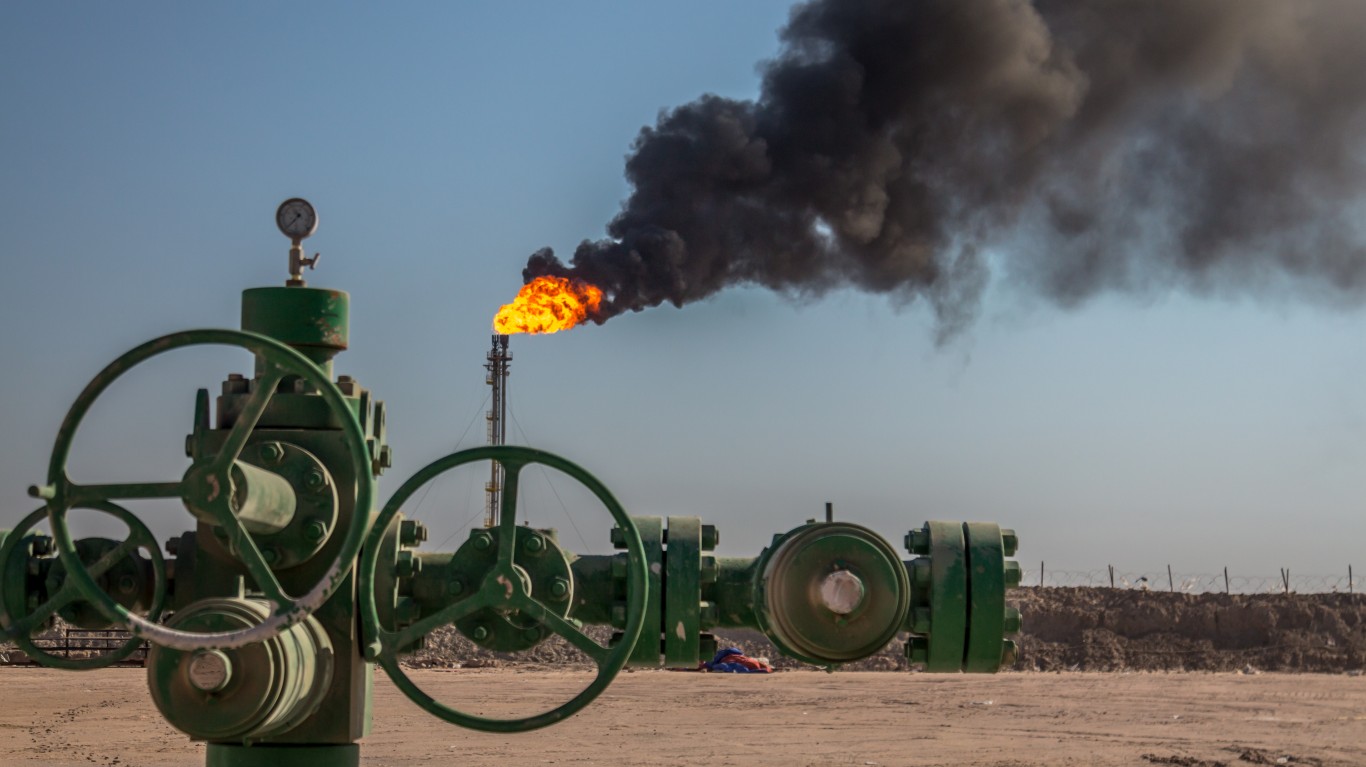
5. Iraq
> Proved oil reserves: 145.0 billion barrels
> Reserves as a share of world total: 8.4%
> 2020 oil production: 4.1 million barrels per day
> 2020 GDP per capita: $9,764
> 2020 oil exports as pct. of GDP: 39.6%
[in-text-ad]

4. Iran
> Proved oil reserves: 157.8 billion barrels
> Reserves as a share of world total: 9.1%
> 2020 oil production: 3.1 million barrels per day
> 2020 GDP per capita: $13,116
> 2020 oil exports as pct. of GDP: N/A
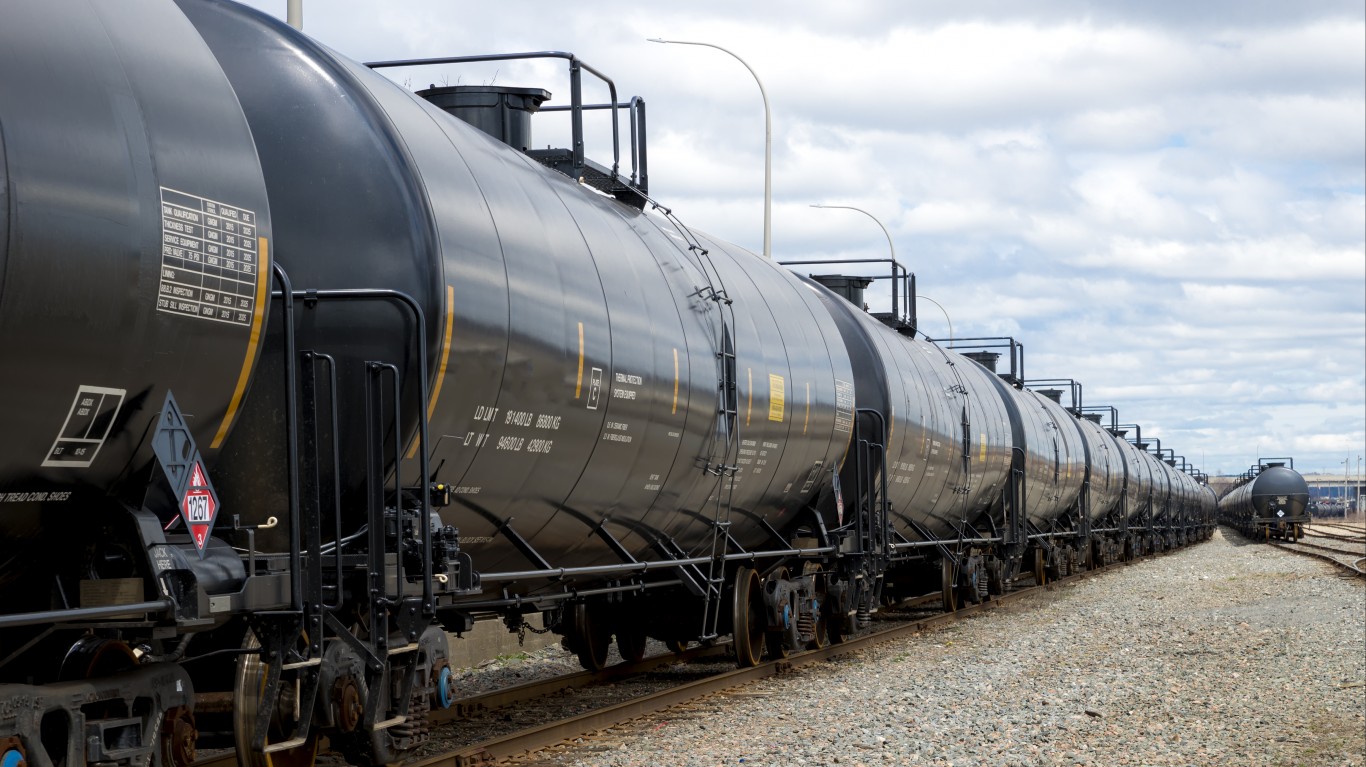
3. Canada
> Proved oil reserves: 168.1 billion barrels
> Reserves as a share of world total: 9.7%
> 2020 oil production: 5.1 million barrels per day
> 2020 GDP per capita: $48,073
> 2020 oil exports as pct. of GDP: 1.6%

2. Saudi Arabia
> Proved oil reserves: 297.5 billion barrels
> Reserves as a share of world total: 17.2%
> 2020 oil production: 11.0 million barrels per day
> 2020 GDP per capita: $46,762
> 2020 oil exports as pct. of GDP: 24.2%
[in-text-ad-2]
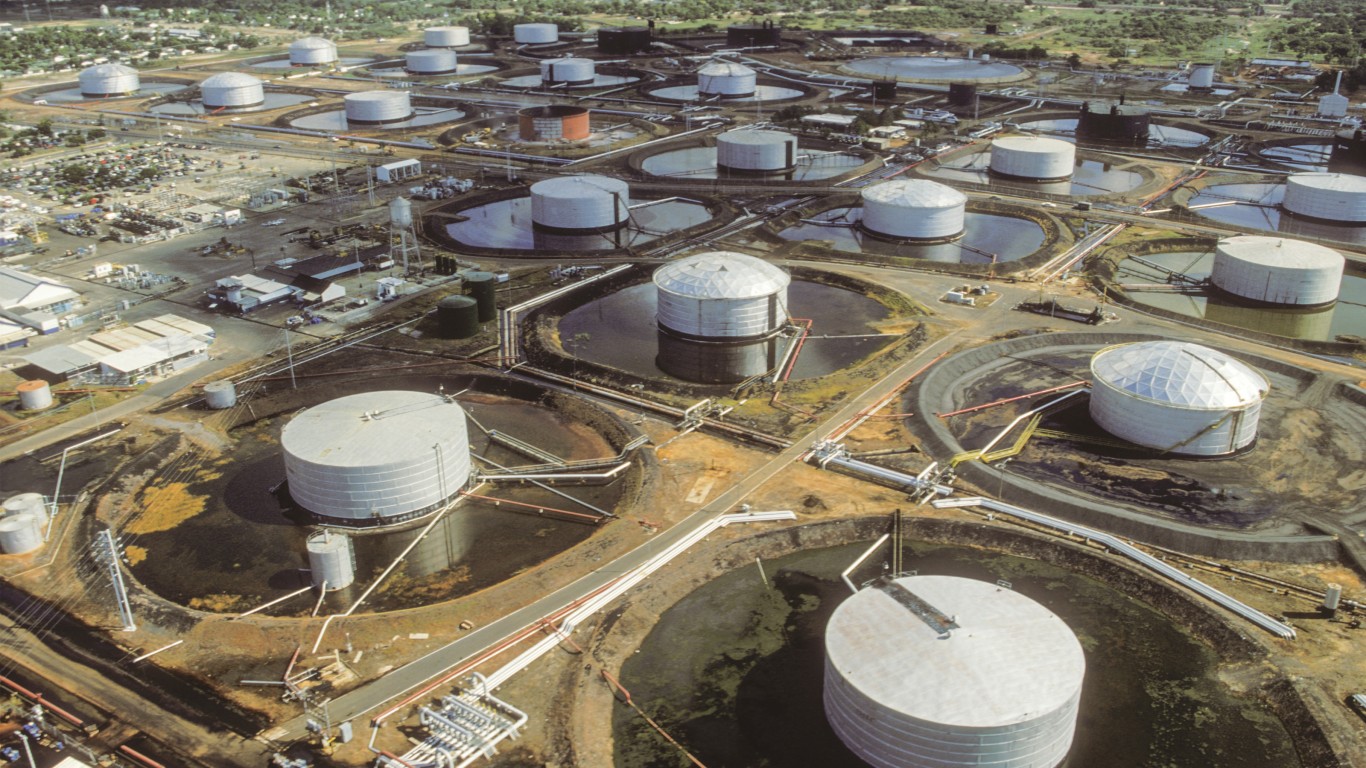
1. Venezuela
> Proved oil reserves: 303.8 billion barrels
> Reserves as a share of world total: 17.5%
> 2020 oil production: 539,761 million barrels per day
> 2020 GDP per capita: N/A
> 2020 oil exports as pct. of GDP: N/A
Methodology
To determine the countries that control the world’s oil, 24/7 Wall St. reviewed data on oil reserves from oil and gas company BP’s “Statistical Review of World Energy 2021.” Countries were ranked based on 2020 proven reserves — those quantities that geological and engineering information indicates with reasonable certainty can be recovered in the future from known reservoirs under existing economic and operating conditions. Data on GDP per capita in 2020 in current international dollars is based on purchasing power parity and is from the World Bank. Data on oil rents — the difference between the value of crude oil production at regional prices and total costs of production — as a percentage of GDP came from the World Bank and is for 2019.
Travel Cards Are Getting Too Good To Ignore (sponsored)
Credit card companies are pulling out all the stops, with the issuers are offering insane travel rewards and perks.
We’re talking huge sign-up bonuses, points on every purchase, and benefits like lounge access, travel credits, and free hotel nights. For travelers, these rewards can add up to thousands of dollars in flights, upgrades, and luxury experiences every year.
It’s like getting paid to travel — and it’s available to qualified borrowers who know where to look.
We’ve rounded up some of the best travel credit cards on the market. Click here to see the list. Don’t miss these offers — they won’t be this good forever.
Thank you for reading! Have some feedback for us?
Contact the 24/7 Wall St. editorial team.
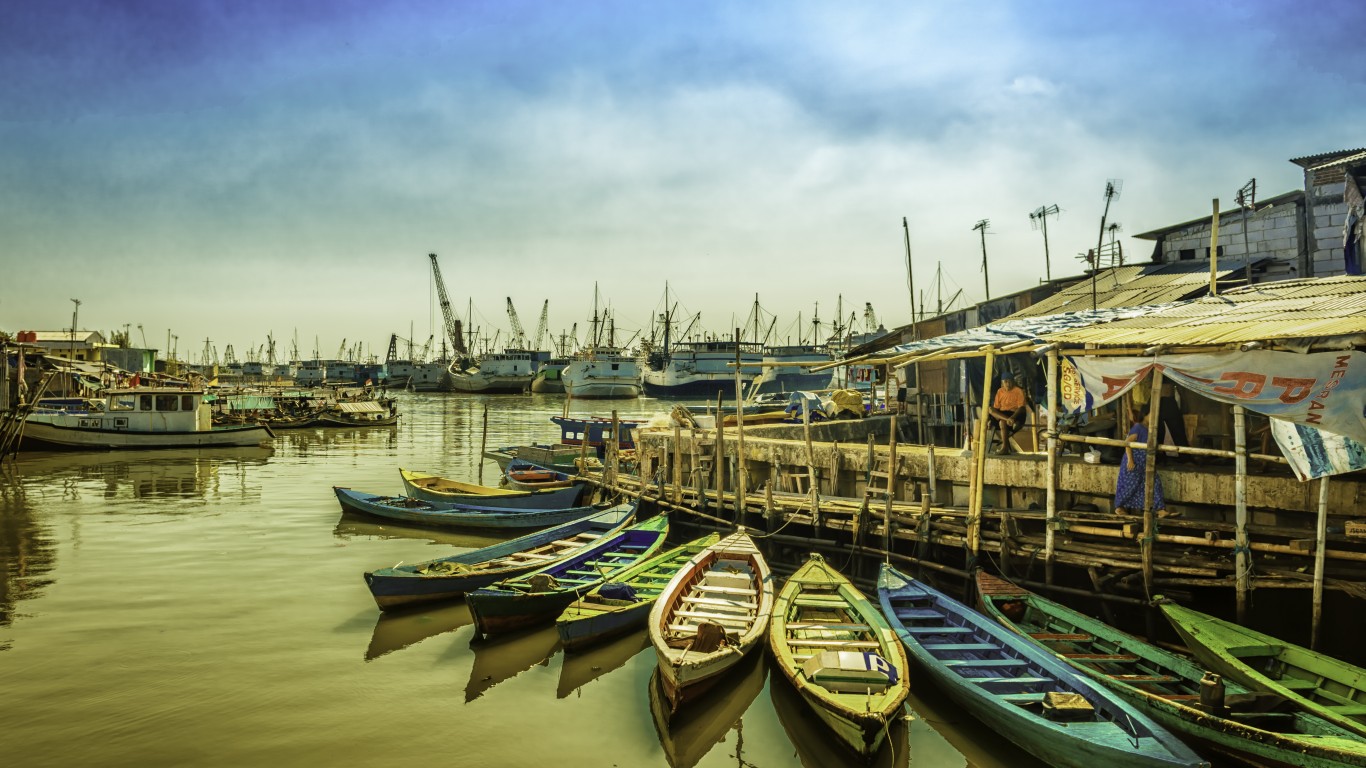 24/7 Wall St.
24/7 Wall St.

